055: Shaping Our Future, Together.
Newsletter #055: Eco-villages, Human Evolution, and Regeneration as a Practice
Hey friends,
This month’s newsletter is woven from the living edge of practice—stories, insights, and resources that have deeply shaped my journey and might just support yours too.
You'll hear key takeaways from a powerful and candid conversation we had for the Land Steward Alliance: Workshop Series with Stephen Brooks, a true pioneer in the eco-village and permaculture movement who’s been shaping communities and landscapes in Costa Rica for over two decades.
A beautifully potent offering that I’m honored to introduce: Dear Future Human, from Ronit Herzfeld. This resource feels like a compass for these uncertain times. A transmission, that calls forward the Future Human in each of us.
I’ll also share some of the most powerful lessons from my deep dive into the Regenerative Practitioner Training with Bill Reed & The Regenesis Institute. A program that fundamentally reshaped how I see and engage with land projects.
And finally, I’m opening a new: Giving Section for this newsletter—a space to highlight causes I believe in and are close to my heart. Give a little. Give a lot.
My intention is that each share and resource in this newsletter serves as a doorway—into deeper connection with yourself, with others, and with the world we’re co-creating.
Lessons from the Field: Gettin' Real
This week, as part of our Land Steward Alliance: Monthly Workshop Series, I sat down with Stephen Brooks—founder of the eco-villages - Alegría & Ecovilla, Punta Mona Education Center, Envision Festival, and his latest project Eterna in San Juanillo, Costa Rica. Stephen is a visionary in permaculture, sustainable community-building, and ecological education. Our conversation took us through his top lessons—from founding eco-communities and festivals to the daily realities of running retreat centers and land projects.
If you're building a land-based project, collaborating with a collective, or simply exploring more intentional ways to organize and connect—this is a rich and inspiring dialogue with someone who’s been on the frontlines for over 20 years.
Key Takeaways from My Conversation with Stephen Brooks
Discernment is everything. Whether choosing investors, partners, or community members—be intentional. Shared values, especially around environmental and social impact, matter more than capital alone.
Contracts aren’t just legal—they’re relational. Clear agreements, even with friends, create clarity and prevent future resentment. They're reminders of commitments, not just legal shields.
Root into the local community. Stephen shared how Alegría connected with town councils, water boards, and supported local causes like community fundraisers. They set a fair wage floor and allocated 20% of lots to Costa Ricans to address gentrification among efforts done by community members.
Design with evolution in mind. “TBD” zones in the master plan leave room for future ideas. Alegría added social programming like ecstatic dance and artist residencies, and used phased development to stay responsive.
Be mindful with media. Press can amplify your message—or misrepresent it. Stephen emphasized the importance of maintaining control over how your project is portrayed given his experience with the Netflix show, Down to Earth.
Hospitality first. Before full-time residents move in, create immersive experiences. Events and short stays help people feel the energy and become part of an experience to discern if this place, and these people are for them.
I’m really grateful to have had this candid conversation with Stephen, and hope it’s provided some lessons and insights that help you on your journey with Land Stewardship.
These are the Conversations we are having at the LSA
Inside the Land Steward Alliance, we’re diving into these deeper questions through workshops, mentorship, and shared practice among a group of peers with a common vision and values for conscious land stewardship and a thriving planet.
We explore how to build resilient people, living frameworks, and place-sourced projects that actually stand the test of time — because they’re rooted in relationship.
Resource: Dear Future Human
In many newsletters and emails that I’ve sent over the years, I’ve shared a lot of valuable insights and lessons from Leap Forward and it’s founder Ronit Herzfeld. Well, it's with great joy that I get to share the following with you!
Dear Future Human — a living body of Ronit's work — is now being shared through her Letters on Substack. It’s been one of the greatest privileges of my life to experience Ronit's work firsthand. Over the years, I’ve felt its profound, transformative impact — and I've often wondered how to share this experience with the people I care about most. The Dear Future Human Letters are a way for more people to get access to what I’ve received from Ronit & Leap Forward.
In a time when so much feels uncertain, Dear Future Human is a compass. A transmission. It calls forward the Future Human in each of us—the part that still dreams, still builds, and still loves beyond fear. These letters don’t shy away from the pain or complexity of our times. They meet them with honesty, vision, and hope.
Please take a moment to read the first two letters via the link below and check out the resources linked in the letters themselves or resource section of the Substack. If it resonates, subscribe to the Substack and you’ll receive the new letters by email every 1–2 weeks. Also, feel free but not obliged, to share this email or the below link with friends who would benefit from this work and this message!
Resource: The Regenerative Practitioner Training
Over the past 9 months, myself and 20 or so peers from Costa Rica and around the world, were immersed in the Regenesis TRP program. It wasn’t just a course on theory — it was a re-wiring of how I understand myself, my work, and my relationship to my external context and the rich tapestry of the living world around me. I thought I was going to learn about regenerative development practices, and instead realized, what we were being taught, was a completely new way of being and relating to our external world.
Here are a few of the most powerful lessons that landed for me:
Regeneration isn’t about minimizing harm — it’s about maximizing life.
Where sustainability aims to slow down the damage, regeneration asks: How can we create more vitality, more resilience, more beauty than was here before?Regeneration is inherently cross-disciplinary because life itself refuses to be boxed in. Ecology, psychology, architecture, planning — all must be in conversation.
We are part of nature, not separate from it.
The story we’ve inherited — that humans and nature are distinct — is false. Regenerative practice invites us back into participation with life’s cycles, as co-creators, not conquerors. To build with nature, not master it.Every place, every community is a living system.
Instead of treating projects like problems to solve, we learn to see them as evolving, breathing entities. The work becomes about helping life systems fulfill their potential, not imposing fixes from the outside.Rather than trying to "fix everything," regenerative practice teaches us to find systemic leverage points — the places where a small, conscious act can ripple through an entire system.
Regeneration starts by seeing potential, not problems.
One of the most beautiful shifts for me was learning to look at any project or situation — not by diagnosing what’s wrong — but by asking: What’s trying to happen here? What latent potential wants to be realized? It's about suspending judgment and choosing curiosity. Asking more questions. Living in a state of wonder rather than rushing to conclusions.We are part of a greater whole.
Every project, every place, every person is embedded in larger living systems.
Our real work is helping the system see itself more clearly — and grow its capacity to regenerate, adapt, and evolve.Regeneration is not about learning — it’s about practicing.
In TRP, the goal wasn't simply to accumulate knowledge. It was to grow our capacity through practice. Through being in the work, again and again, until new patterns of seeing and being take root.True change requires true commitment.
No amount of technical expertise can replace genuine care and responsibility. Working regeneratively asks me to grow as a person. It demands a different way of seeing, a different level of listening, and a humility toward life’s complexity that no checklist can replace.Nature already knows how to heal.
Our job is not to control but to remove obstacles and create conditions where self-healing and self-organizing processes can thrive — whether it’s a river, a community, or a community.Think on multiple levels — and notice your state of being.
Regenerative work isn’t just tactical. It’s about how we show up.
Am I approaching life from my habitual self — reactive, defensive, rushed?
Or from my needed self — open, creative, deeply present to what life is asking for right now?Regeneration is a living, evolving practice.
It’s not a method you master once. It’s a way of being that keeps evolving, deepening, and adapting as you and the world around you change. It’s a way of participating in the ongoing unfolding of life — with humility, courage, and creativity
In closing: The Regenesis TRP didn’t just teach me about regeneration.
It invited me into a different way of being — one grounded in potential, curiosity, and co-evolution. A new orientation toward possibility, partnership, and participation with life. And I can feel that this way of seeing will continue to unfold in everything I touch — from land projects, to community building, to my own inner growth.
Regeneration is not something we "do" to the world.
It’s something we become, together with it.
🌱 Giving Section
This is a new section for causes that really move me and that I support financially. I truly believe in the power of transformative philanthropy at any scale, to ease suffering and improve the lives of others. If you haven’t given in a while, give it a go, and feel the love.
Terra Keepers: Wisdom Keepers of the Earth
I’ve known Jose Reynoso from Terra Keepers for years and his passion and dedication preserve indigenous wisdom, both culturally and ecologically has always left me in awe. This is an amazing endeavor from an amazing human!
⚡️ Land Project Compass Assessment ⚡️
I've created a powerful tool to help you assess where you're at with your land project called - The Land Project Compass Assessment. It's free, takes 5 minutes, and it will reveal a lot! Regardless of whether you have a project already underway, or are actively dreaming something up, this assessment will help guide you to the heart of what's important. After completing it, you'll get a visual scorecard of your project's health, important insights across key areas, and suggestions for next steps if you are looking for support. I hope this assessment helps you see yourself and your reality with greater clarity. Click here to take the assessment now.


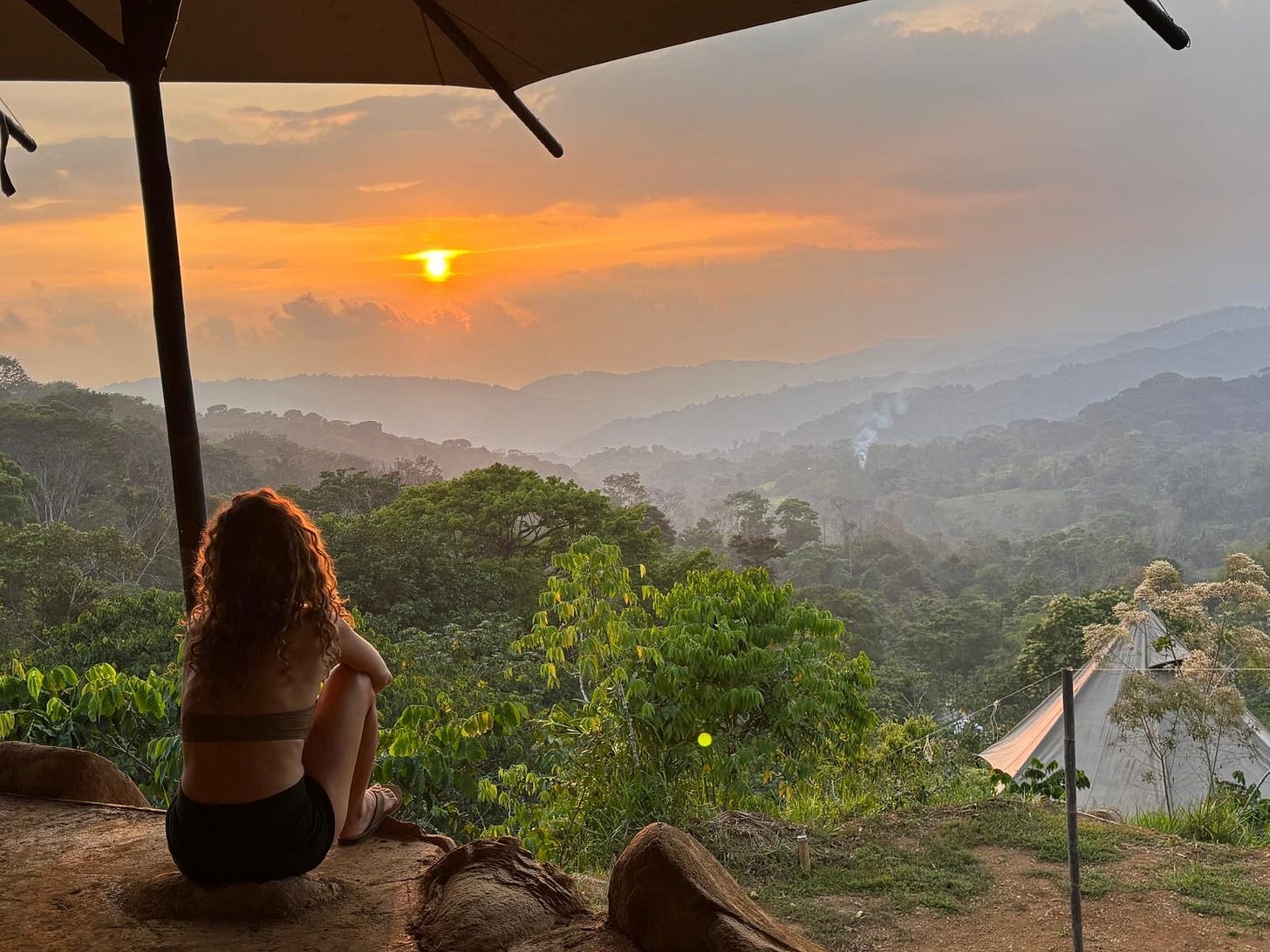
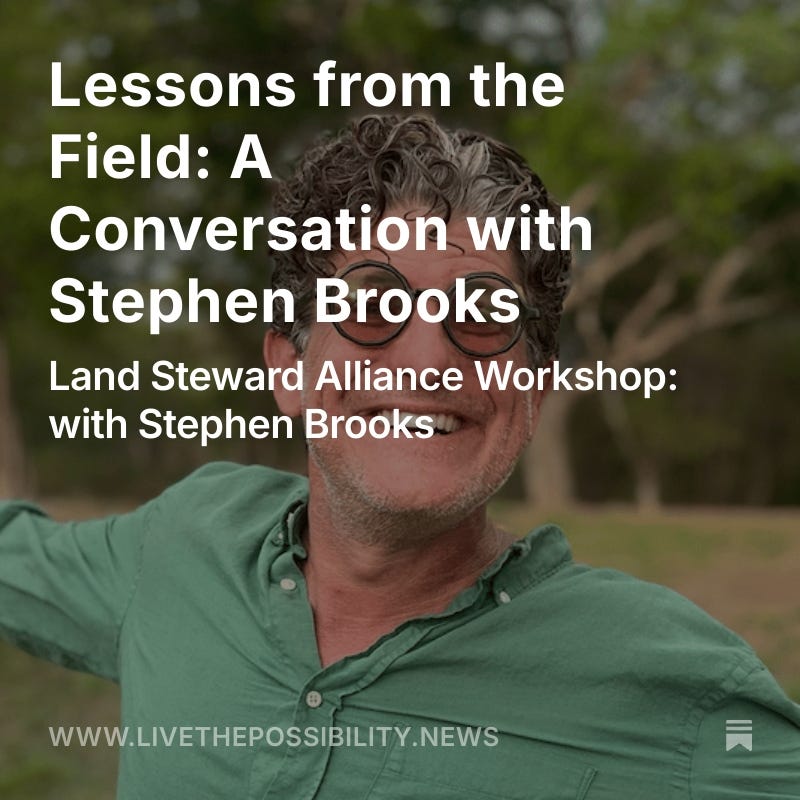
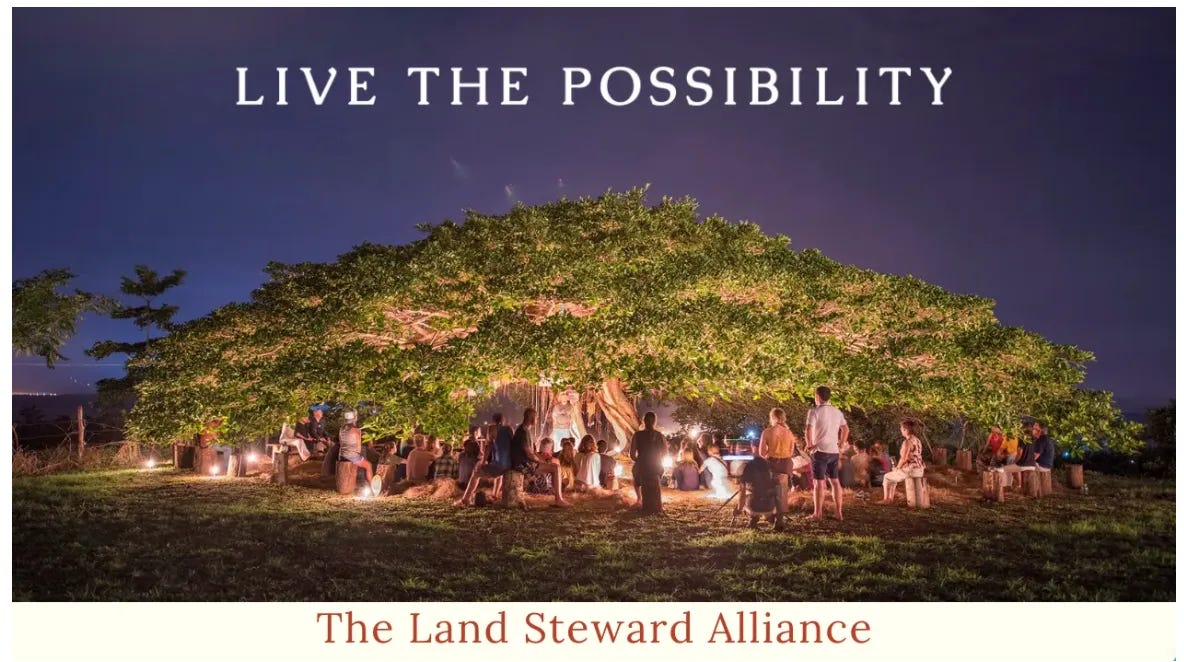


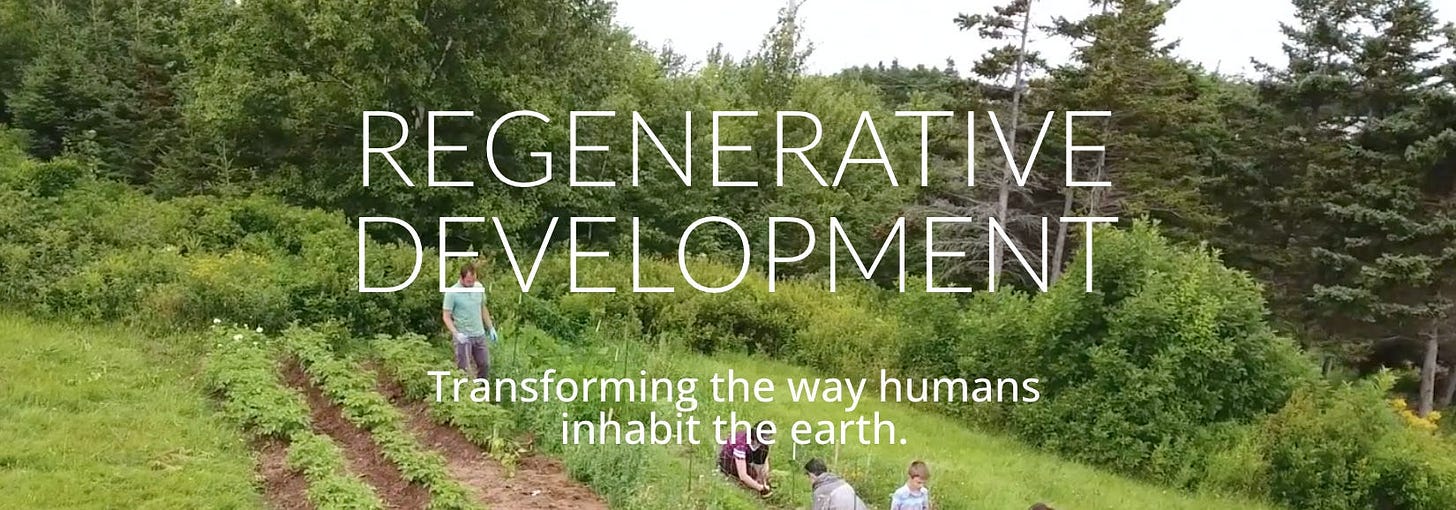



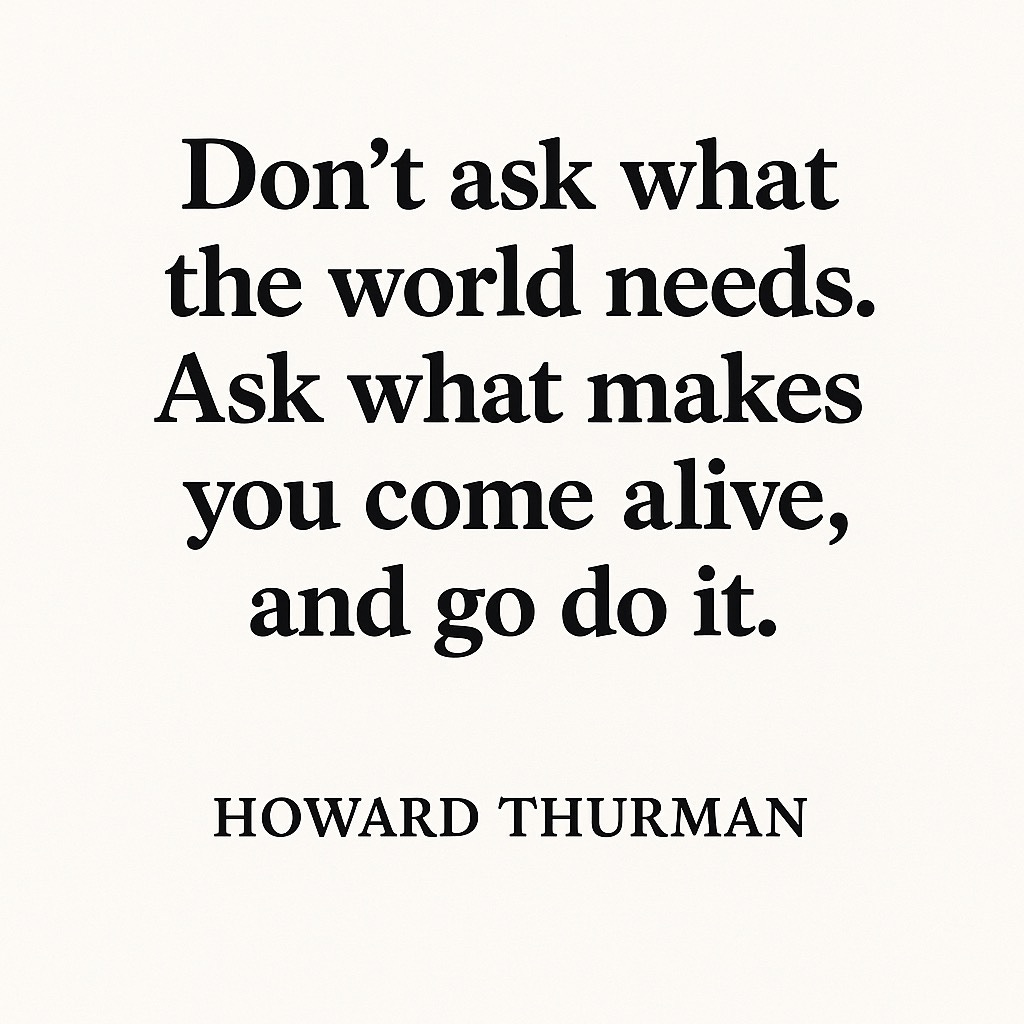


So happy to have found this resource! My family will be relocating to Costa Rica soon and I am very much looking forward to living in better harmony with the Earth. 💚🌎💙